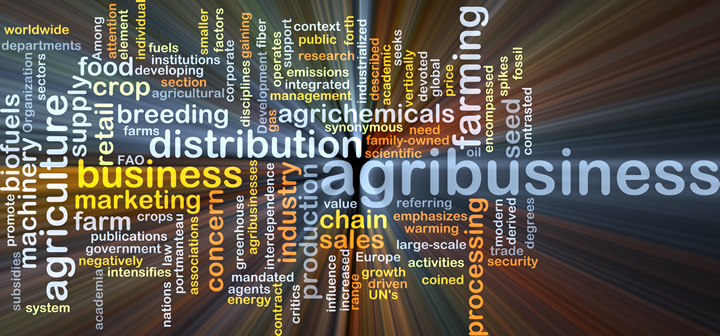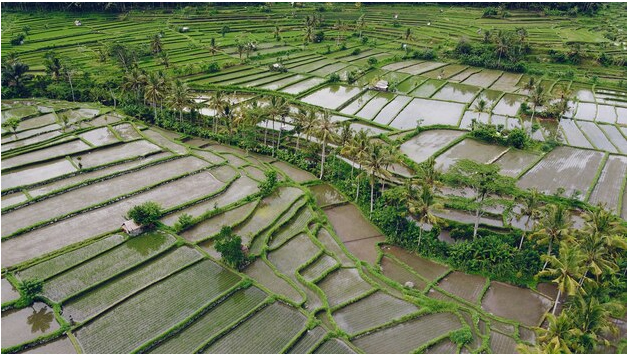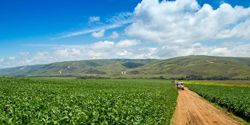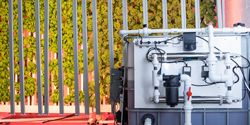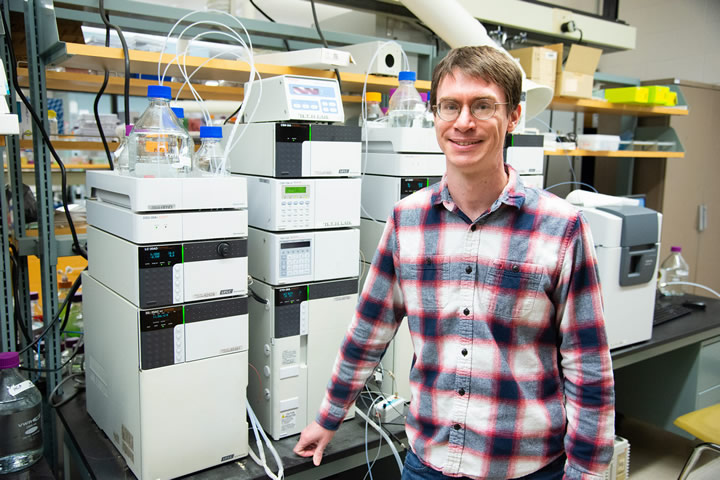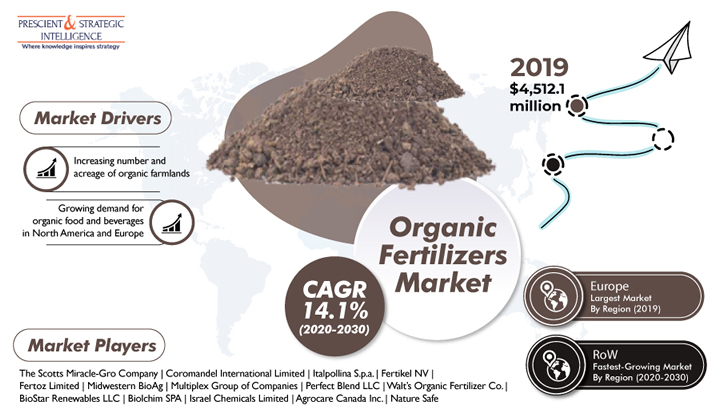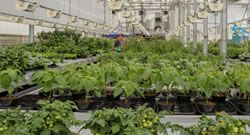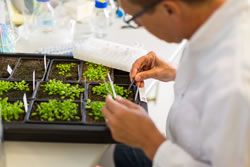Iowa Innovation Puts Green Ammonia to the Test
Anhydrous ammonia is a key nitrogen fertilizer, prized for its high nitrogen content and cost-efficiency-making it especially effective for boosting corn yields.
Plant Health Monitoring: The 5 Most Important Factors to Check
As a hydroponic grower, plant health monitoring is a crucial aspect of ensuring your plants thrive and produce high yields. In this blog, we'll discuss the key factors to monitor and how to address common plant deficiencies.
Feed Your Soil and Grow Your Yields With a Balanced Diet of Nutrients
The USDA says nutrient management is inconsistent across farms in the Upper Mississippi River Basin.. Let's dig into how balancing key nutrients can boost soil health, crop yields and profits.
AI Enhancing Nanotechnology in Agriculture: A Leap Forward in Sustainable Farming
The integration of Artificial Intelligence (AI) into nanotechnology is revolutionizing agriculture, offering unprecedented opportunities to enhance crop productivity, pest control, and environmental sustainability
7 Tech Advances Transforming the Bulk Storage of Fertilizer
Improving quality control while keeping costs down is critical. Technology has assisted the sector in recent years with numerous advances. What tech lets agricultural professionals effectively store their fertilizer in bulk?
"Preserving Valencia's Water; Empowering Farmers with Organic Fertilizers for Pollution Free Aquifers".
The impact of inorganic fertilizers on the environment includes soil degradation, water pollution, and contribution to greenhouse gas emissions. More usage may lead to nutrient runoff, affecting water quality and aquatic ecosystems
Plant Pathogens - Fundamentals for Indoor Growers
Pathogens can hugely impact your yield, and your yield impacts your revenue, so, it's important that you understand some of the fundamentals before any problems occur.
Improve Profitability by Optimizing the Use of Fertilizer
One of the biggest obstacles to profitability in the agriculture industry is knowing how much fertilizer to use. If farmers don't use enough, yields will be low, and profitability will suffer.
"Growth Turbo" CO2 - How Does CO2 Fertilisation Work in the Greenhouse?
Higher yields can be achieved by artificially increasing the CO2 concentration in the greenhouse, especially for vegetables. This offers greenhouse operators an enormous competitive advantage compared to outdoor cultivation.
Flushing Hydroponic Systems: Nutrient Imbalance, Waste, and An Alternative Solution
We recommend that hydroponic growers flush their systems every month to every few months, depending on the type of system they're running. But why? We're also fans of recirculating system because it conserves water and nutrients.
Auburn University researcher studying poultry wastewater as way to irrigate crops
As freshwater supplies become increasingly limited and the world's population continues to grow, Auburn University College of Agriculture researchers are working on ways to find and utilize alternative water resources for irrigating crops.
Organic Fertilizer as Fuel and Organic Farming as Tool, Earth To Be Clean and Green
The rising public awareness on the harmful effects of food produced from conventional chemical-fertilizer-based agriculture, the growing health consciousness of the masses, especially in North American and European countries, is also pushing up the demand for organic food.
Regenerative Farming: The Need of Modern Agriculture
Regenerative farmers use nutrient-rich manure and compost to enhance the fertility of the soil and avoid fertilizers that kill beneficial microbes and reduce plant resilience.
Terramera Raises US$45 Million to Reduce Synthetic Chemicals in Agriculture by 80%
Company adds veteran leader Carl Casale; set to transform agriculture and achieve 2030 goal of reducing global synthetic chemical loads in agriculture by 80%
Researchers Reveal Plant Defense Toolkit and Insights for Fighting Crop Diseases
Representing a major advance for plant biology, the findings have important implications for the management of dangerous crop diseases which represent significant threats to food security.
Records 1 to 15 of 17
Featured Product

iglide® Q3E - two-component, high-load bearings for heavy-duty use
In this iglide® multi-component bearing, the outstanding tribological properties of iglide® Q3 are embedded in a high-strength jacket. The result is an even higher mechanical load capacity with simultaneously low wear, perfect for heavy-duty applications in harsh environments.




.jpg)
